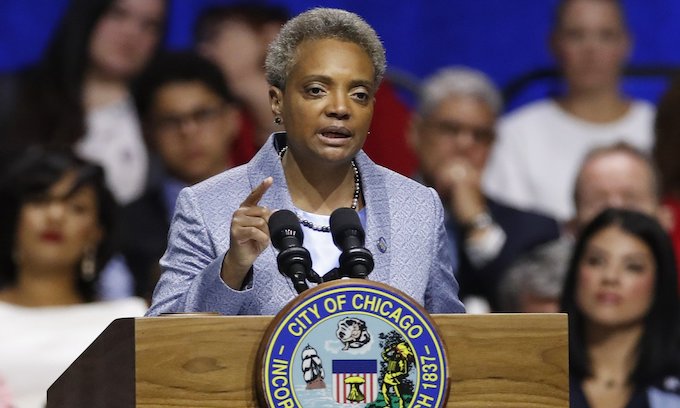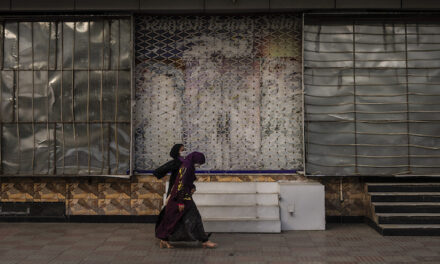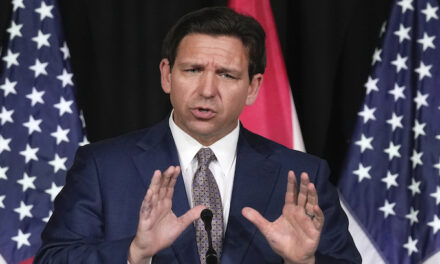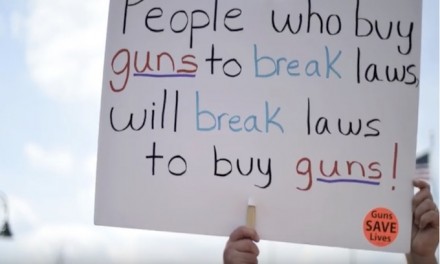The city will be fining churches that had more people than allowed under the statewide stay-at-home order, Chicago Mayor Lori Lightfoot said Monday.
Which ones specifically will be determined later today, Lightfoot said.
Over the past week, Lightfoot had been asking churches to abide by social distancing rules and warning that she would take action against churches that refused.
But on Sunday, hundreds of people defied Illinois Gov. J.B. Pritzker’s stay-at-home order to attend church anyway and the mayor’s office warned that violators may be cited after review.
At an unrelated news conference to highlight coronavirus testing sites aimed at black and brown communities, Lightfoot said the city would be fining those churches that didn’t comply with her directives, though she didn’t specify which.
The dispute kicked off a week ago after Metro Praise International Church on the Northwest Side opened its doors for in-person services in an act that church officials described as “passive resistance” to Pritzker’s ongoing stay-at-home order.
That defiance led Lightfoot to tweet, “It doesn’t matter who you are or what you’re doing. When you gather like this, you are putting yourself and your loved ones in serious danger.”
Another church, Elim Romanian Pentecostal Church, hosted Sunday services in Albany Park despite the stay-at-home order.
Both those churches criticized Lightfoot and Pritzker after her warning, and both held services over the weekend.
Metro Praise church in Belmont Cragin opened and had 100 members show up, according to the pastor.
The pastor of Elim Romanian church in Albany Park said that nearly 115 people attended the church’s morning service and the same number was expected for the evening service.
Churches pose a thorny enforcement problem due to potential First Amendment questions and a political one, too, as no elected official wants to cross local ministers.
Lightfoot has attempted to work with critical churches. In a letter to faith leaders Thursday, she noted that the coronavirus pandemic has disproportionately affected Chicago’s black and brown communities and many churchgoers are vulnerable
“When you look across your congregations, do you see the elderly, or people with underlying medical conditions like asthma, diabetes, heart disease or upper respiratory ailments — the kinds of underlying conditions that make each individual, old or young, significantly more vulnerable to COVID-19?”
___
(c)2020 the Chicago Tribune
Visit the Chicago Tribune at www.chicagotribune.com
Distributed by Tribune Content Agency, LLC.
—-
This content is published through a licensing agreement with Acquire Media using its NewsEdge technology.



















Recent Comments